The sprawling trees, which are one and a half to two and a half meters high, stand closely together in long rows. Here, in the Brazilian state of Ceará, acerola cherries grow particularly well because of the hot weather and abundant light. The harvesters pick the fruits, carefully place them in their buckets, and then collect them in wide, light green containers. On the same day, they are driven by truck to a factory a few kilometers away. This is important because otherwise the valuable and delicate goods spoil quickly. In the factory, the fruit is processed into juice, which is then carefully concentrated. Afterwards, it is transported to France in large containers. At the Diana Food plant in Antrain, Brittany – only a few kilometers from the tourist attraction Mont-Saint-Michel – the juice concentrate is finally processed into highly aromatic powder in a spray drying plant.
The effort is worth it because the reward is the important and equally valuable ingredient of acerola cherries. It is considered the fruit with the highest content of vitamin C. The juice of this slightly sour stone fruit contains up to 50 times as much vitamin C as in a lemon – depending on where the cherry is grown. The ones from Ceará contain between 2,000 and 3,000 milligrams per 100 grams of fruit. They also contain minerals such as potassium, calcium, and magnesium and secondary plant substances such as flavonoids, pectins and anthocyanins. This diverse mix offers great benefits. Acerola, for example, has an antioxidant and cell-rejuvenating effect because it boosts the metabolism.
Naturally better
Many people benefit from the vitamin boost by taking food supplements containing acerola. Demand is constantly increasing, says Nathalie Richer, who works for Diana Food in the health and nutrition area. As product manager, she is responsible for acerola products, among other things. Symrise has been offering these products for 20 years already. In recent years, the business has experienced a major boost. “Customers increasingly want products from nature,” explains Nathalie. “With vitamin supplements, this makes a lot of sense because natural vitamins are much better metabolized than synthetic ones. Therefore, they work better.” In addition to tablets, the powder is also used in beverages or functional foods designed to increase well-being.
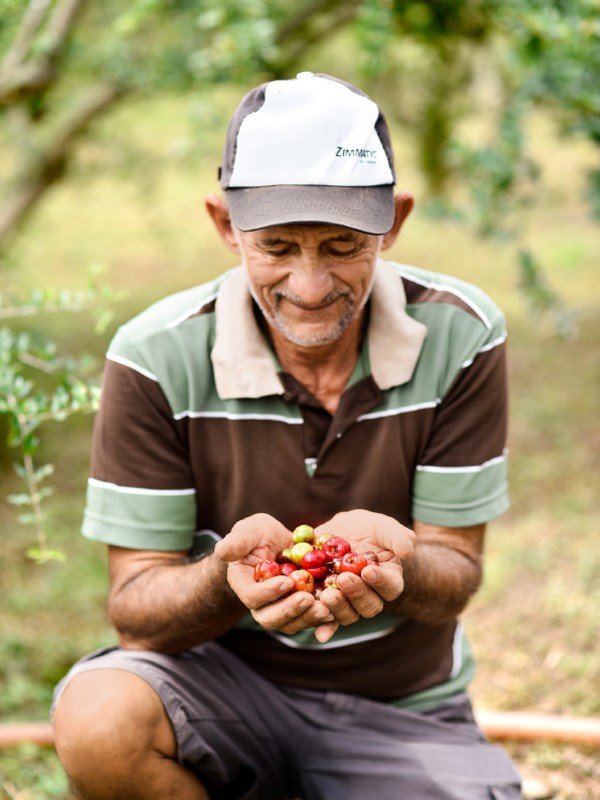
Acerola has 50 times as much vitamin C as lemons.
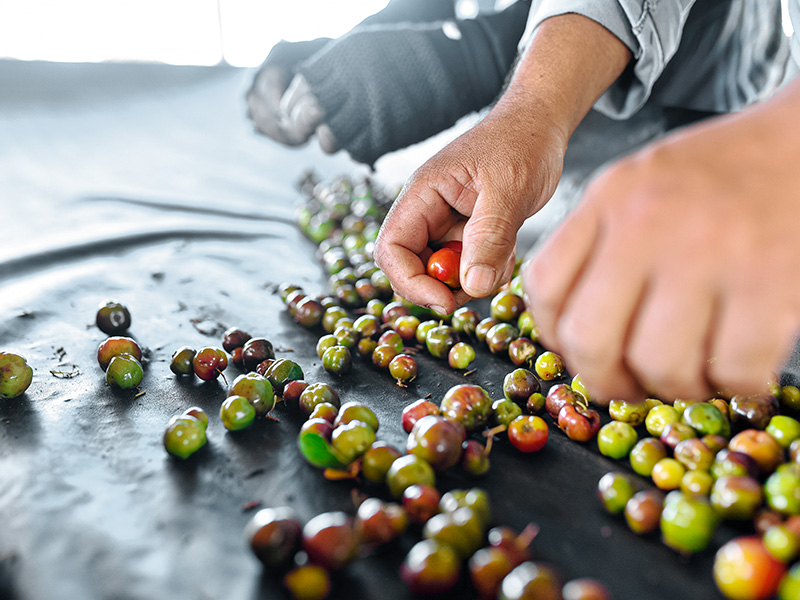
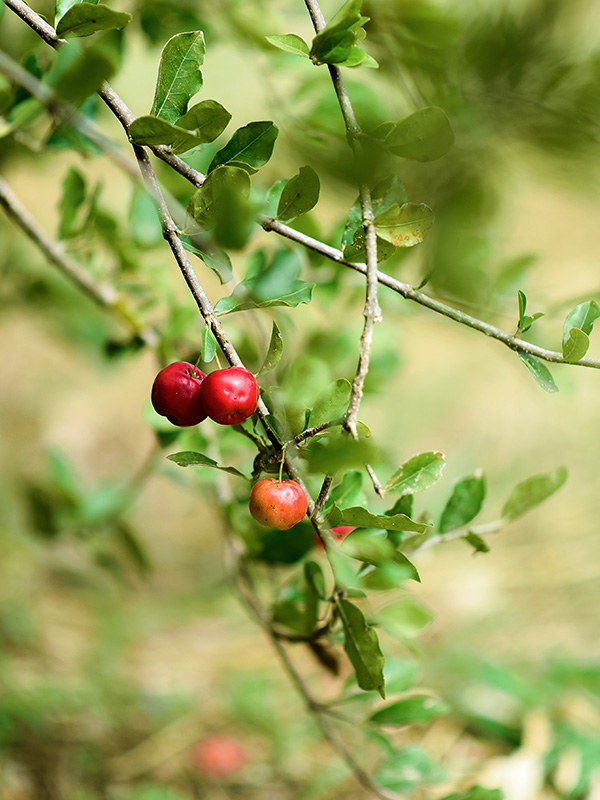
In order to obtain the best raw materials, Diana Food has been involved in the producing countries for years. In Brazil, the company works with several suppliers in the region to ensure the availability and the best quality of the fruit. The companies in turn buy the acerola cherries from a number of farmers who live in the Amazon region. “We help to improve cultivation and harvesting methods to achieve higher quality,” says Nathalie. To do so, the agronomists from the suppliers and from Diana Food share information. “For example, they have stipulated that farmers should harvest the fruit when it is just about to ripen because that is when the vitamin content is at its highest.” The still green acerola cherries land in the baskets. This initially caused incredulous looks. However, farmers quickly realized that their products had to be harvested unripe for exactly this purpose – and that in this way they could increase the value of their harvests and thus their income.
Over the years, the organic trend has changed agriculture in the area. “More than 10 % of our acerola purchases now come from organic agriculture, with a strong upward trend,” explains Nathalie. The acerola powder that Diana Food finally brings to market has a vitamin C content of 17 %. Another one that contains twice as much of the ingredient comes from conventional agriculture. It is mainly used to preserve food products such as processed meat goods. As a strong antioxidant, it is well suited for this.
“We help to improve cultivation and harvesting methods to achieve higher quality.”
Nathalie Richer
Product Manager at Diana Food
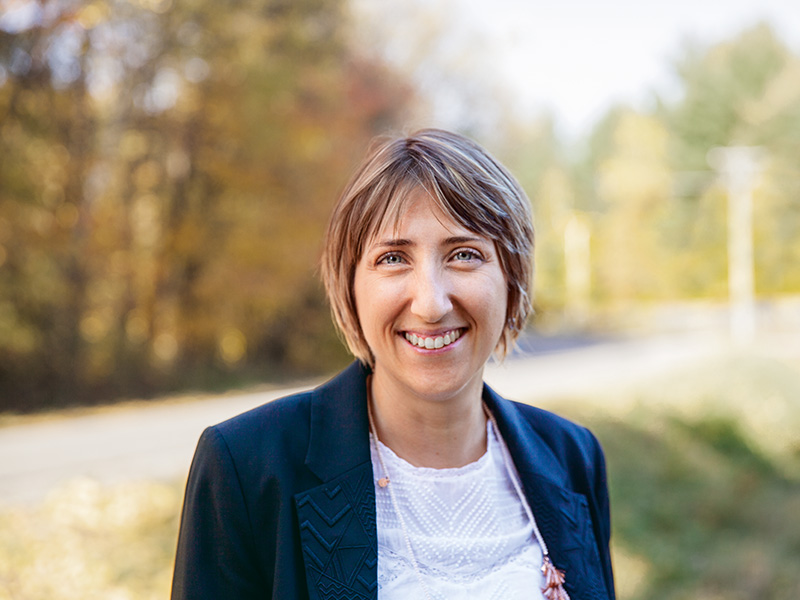
Nathalie Richer works as product manager for Diana Food in the health and nutrition area.
More than organic
Now, in September 2020, Diana Food has launched a new acerola powder. This one goes a step further. “We were the first company worldwide to develop a fair trade acerola powder,” says Marie Le Henaff, Global Sustainability Manager within Symrise Nutrition. A customer specifically commissioned the concept, which also includes organic certification. “Now it will be expanded to other customers, especially in Europe,” says the company’s sustainability manager. The certification, which is verified by the strict “Fair for Life” seal, requires very different measures and is checked by external experts. This includes, for example, quality, traceability and food safety. Social and ecological aspects as well as long-term commitment to suppliers also play a role.
“In the beginning, we looked for a partner among our suppliers who already produced organic ingredients anyway,” continues Marie Le Henaff. The positive impact on the environment was important, and now the social component can be added. “The new certification that we started in May 2020 fulfills several purposes at once for us: We can really make a difference for the people in the region while diversifying our product portfolio and meeting the demand for fair trade products,” Marie Le Henaff explains. This is how sustainability and economic success work together.
Commitment with planning stability
But that’s easier said than done, Marie Le Henaff emphasizes. To receive the “Fair for Life” certificate, which is verified annually directly with the farmers, companies must be committed and address the entire value chain – from the farmer to the factory to the customer. An important element is that suppliers pay farmers at least 10 % more for fair trade raw materials than for conventional ones. This is guaranteed for three years so that both sides can count on it in the long term – no matter how the market develops.
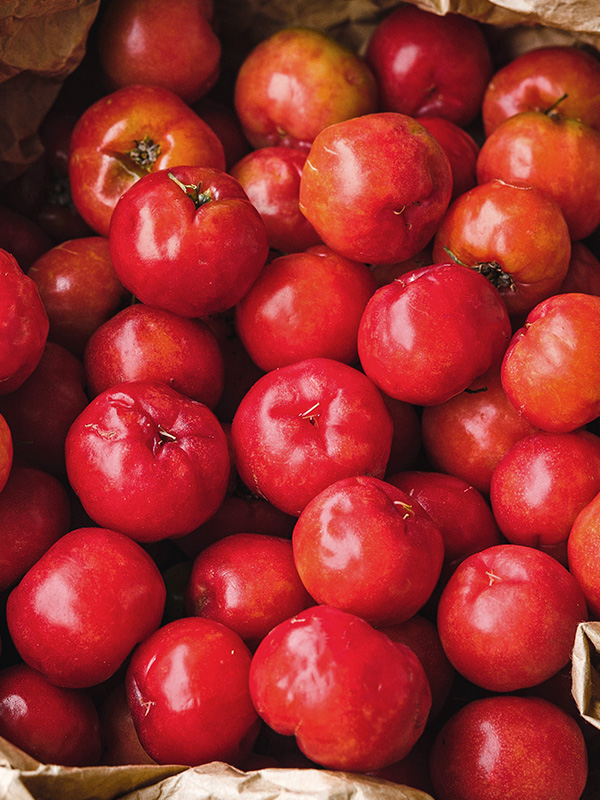
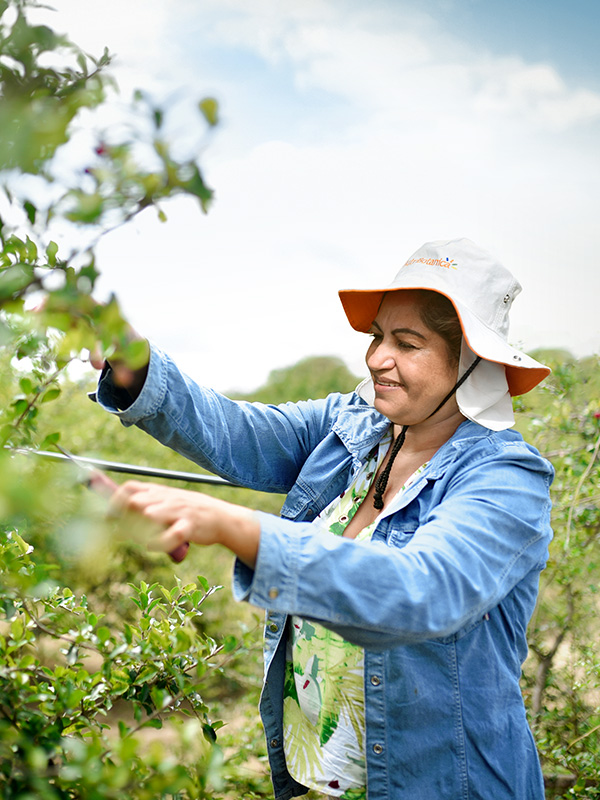
After picking the fruits, harvesters must process them quickly so that they don’t spoil.
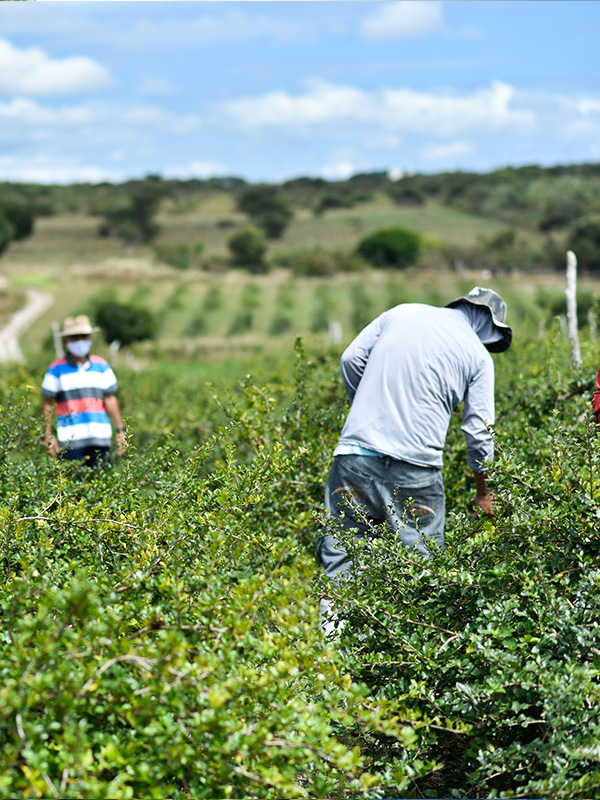
“The farmers can only convert their production if they know that we will work with them over a long period of time.”
Marie Le Henaff
Global Sustainability Manager at Symrise Nutrition
“The farmers can only convert their production if they know that we will work with them over a long period of time,” continues Marie Le Henaff. But the money doesn’t just flow into farmers’ pockets; it should also be used to improve processes. “Our supplier has formed a committee with the farmers to jointly discuss new agricultural practices.” These include, for example, water management and cultivation techniques. Another part of the commitment concerns issues that often have nothing to do with agriculture – from health care and education to equal opportunity. “But the independence of the farmers is also always important to us,” says Marie Le Henaff. “They can work with us, but they don’t have to.”
Certification under difficult conditions
The certification process took place in the first phase of the coronavirus pandemic. “It wasn’t easy because the ‘Fair for Life’ employees were not allowed to travel,” Marie Le Henaff remembers. “But we absolutely wanted to implement the certification.” Therefore, the first audits were initially conducted online by the third party. Afterwards, when the number of cases and thus also the restrictions decreased, the auditors could travel to the farmers. The first interim results are positive. “For us, this is a pilot project that we want to expand,” says Nathalie Richer. “Together with our suppliers, we can achieve a great deal.” The fair trade component has a future, explains the project manager. “We estimate that 5 % of the market will be suitable for this in the coming years.”
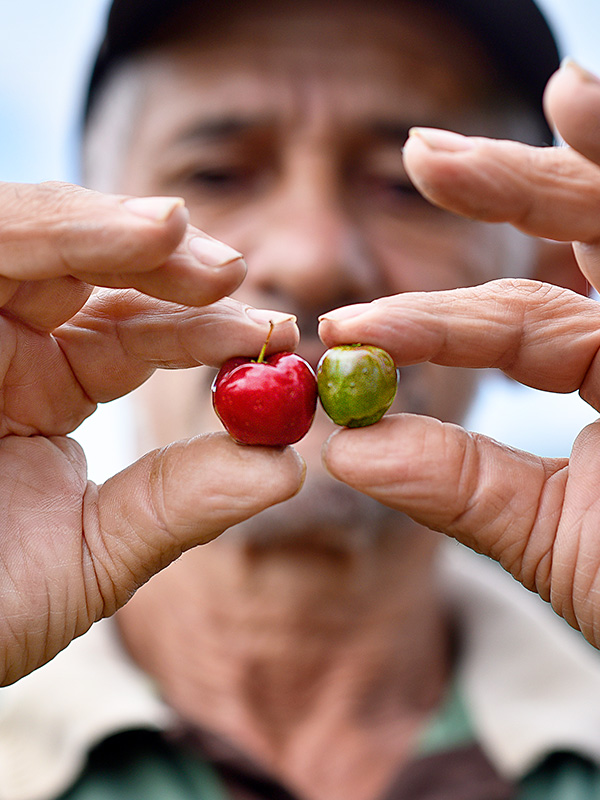
Acerola fruits are harvested while they are still green because that’s when they contain the highest amount of vitamin C.
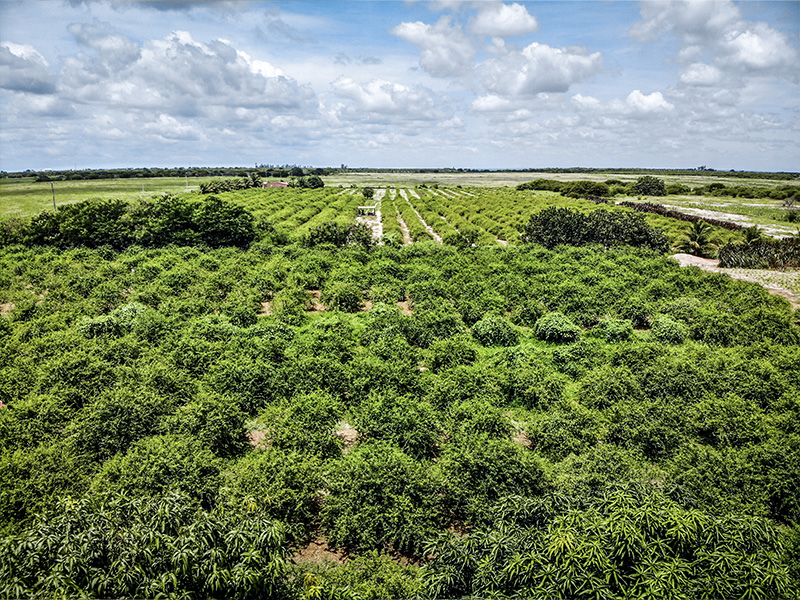
Acerola plantations often extend over several kilometers.

What is acerola?
At first glance, the fruits of the acerola tree look like cherries. They can be red, purple or yellow and ripen several times a year in tropical or subtropical regions, especially in North and South America. The fruit has a very short cycle of only 25 days, which is good for the yield at harvest. However, due to its thin skin and rapid maturity, it does not last very long. Therefore, it must be processed quickly. In most cases, it is pressed into juice, which is then often processed into powder by freeze or spray drying.
From
11 kilograms
of fresh fruit
1 kilograms
of acerola powder can be made
by juicing and drying.
